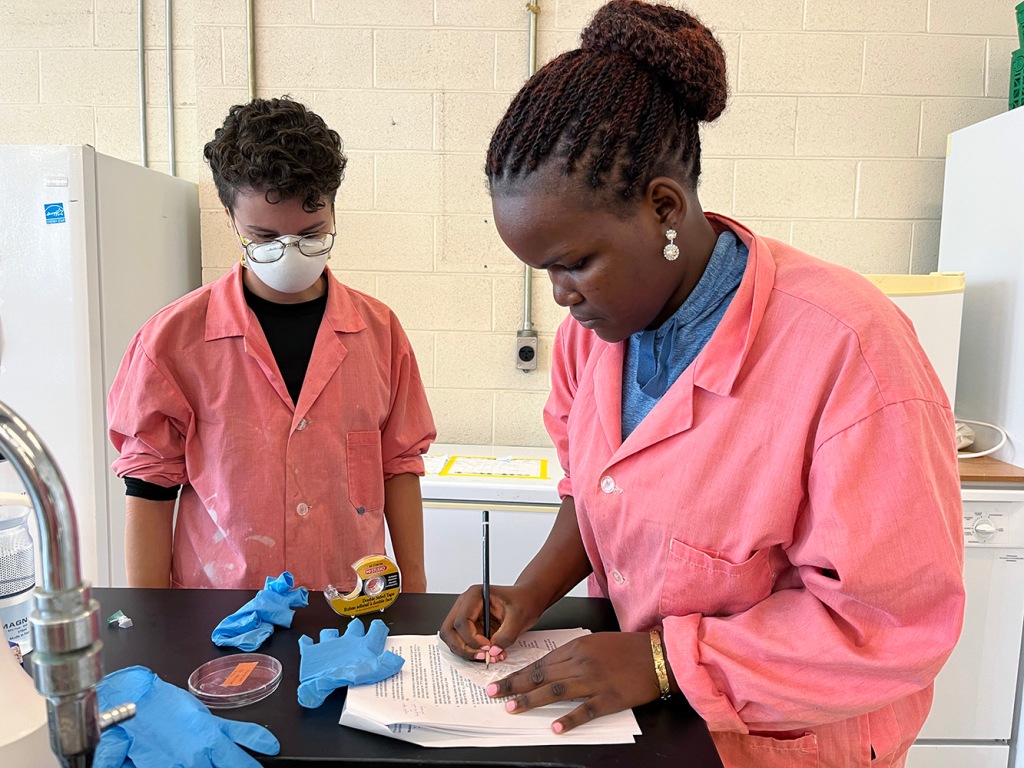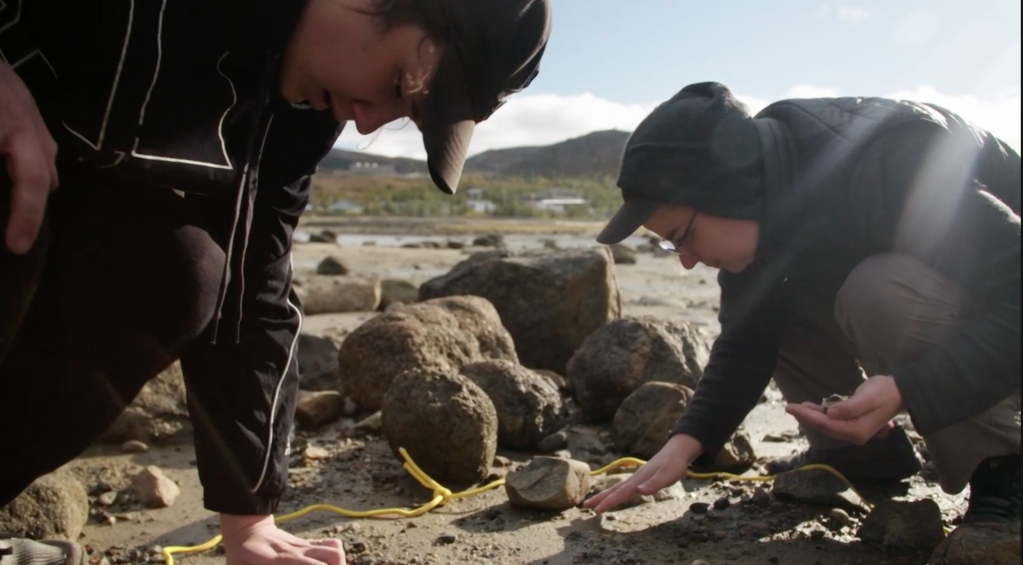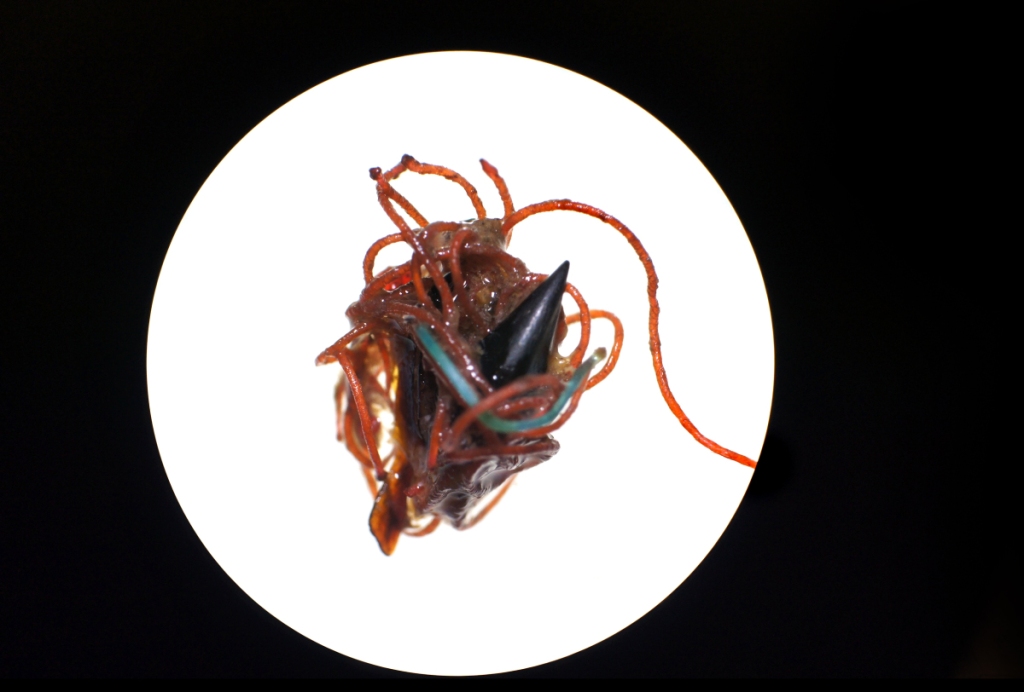LAB TECHNICIAN (sample processing)
CLEAR Lab
Geography Department, Memorial University of Newfoundland and Labrador
St. John’s Campus
Contractual Position: Start date any time between May 15 and September 1, 2024 (negotiable), until October 1, 2025.
CLEAR lab at Memorial University, led by Dr. Max Liboiron, is seeking a full-time (30-35 hrs/week) lab technician. Based on the St. John’s campus, CLEAR lab is a training lab that specializes in plastic pollution research and anticolonial, justice-based methods. We support a vibrant community of graduate, undergraduate, and high school students as well as visiting and affiliated faculty and community members. Our lab methods and culture are based in humility, accountability, collectivity, and good land relations. We are engaged in long-term plastic monitoring with partners in Nunastiavut (Inuit land claim agreement in northern Labrador), as well as overseeing multiple monitoring contracts for other Inuit and First Nations communities. All of our science is community-oriented.
We are looking for a full-time Lab Technician to join our team. We are looking for someone with some laboratory research experience, but you do not have to be an expert in plastic pollution. All training will be provided. We are interested in applicants who align with our values of humility, accountability, collectivity, and good land relations, and who will flourish working in a self-described feminist and anti-colonial lab space with diverse colleagues (we have many queer, non-binary, Indigenous, and generally fabulous lab members).
JOB DESCRIPTION
The Lab Technician’s primary job is to process animal and environmental samples for plastic pollution as well as partaking in day-to-day lab activities. Specific duties of the position include:
- Practice and model lab values of humility, accountability, collectivity, and good land relations in interactions with samples, colleagues, and collaborators (see our lab book for examples of what this looks like);
- Dissect, process, and visually examine animal gastrointestinal tracts (guts) provided by community partners for microplastics;
- Examine samples of environmental media (such as water, snow, and ice) for microplastics, which may involve the creation, testing, and validation of new methods, particularly those that are accessible to community research;
- Train student research assistants in the processing of animal and environmental samples for plastic pollution, and the visual verification and characterization of recovered microplastics;
- Maintain quality assurance in the laboratory environment (i.e. limiting and monitoring microplastic contamination) and follow quality control protocols to ensure microplastic recovery is at or above industry standard. This may include the creation of innovations in contamination prevention and quality assurance more broadly;
- Conduct data entry during sample processing;
- Attend weekly lab meetings; and
- Work independently and as part of a collective. CLEAR is a team-based lab.
OPPORTUNITIES
- Co-analysis of data and co-writing of results is possible, depending on the successful candidates’ interests.
- The lab uses anti-oppressive facilitation techniques and engages in consensus-based decision-making. All lab members are trained in these techniques and take part in making lab-wide decisions together.
- CLEAR engages in both natural and social science. Participation in social science projects is possible, based on the successful candidates’ interests (for example, our last Lab Tech was part of CLEAR’s Citaitonal Politics working group).
- Funding is available for professional development in areas that align with the job description and the successful candidates’ interests.
QUALIFICATIONS
All training in plastic pollution research and lab culture is provided. This is an entry-level position ideal for a recent university graduate, a retiree returning to the workforce, or for those with non-traditional career paths.
- A degree in a science-related discipline (undergraduate or graduate degree) or equivalent experience;
- Experience working in a laboratory environment;
- Experience working with datasets and data entry;
- Demonstration of working within CLEAR values of humility, accountability, and collectivity;
- Attention to detail and patience; and
- Legally able to work in Canada.
The following are assets and are not required. However, if you have these please comment on them in your application:
- Experience in both the natural and social sciences/humanities;
- Experience in plastic pollution research;
- Experience in quantitative data analysis;
- A Master’s or Honour’s thesis or other experience conducting research;
- Knowledge of feminist, anti-colonial, queer, Indigenous, or abolitionist sciences.
CONTRACT DATES: Start date any time between May 15 and September 1, 2024 (negotiable), until October 1, 2025.
WAGES: $30-35/hr, based on experience. This position is Band 6. Benefits (health care, dental care, paid leave) are included. Final wages are based on experience and determined via HR. Annual raises (~2%) are automatically part of this position. This position is funded through an external grant.
CLOSING DATE: Please submit applications by May 6, 2024.
APPLICATION: Please send:
1) a cover letter discussing your experience and qualifications concerning the qualifications, opportunities, and job description above (please specifically address the section: “We are interested in applicants who align with our values of humility, accountability, collectivity, and good land relations, and who will flourish working in a self-described feminist and anti-colonial lab space with diverse colleagues (we have many queer, non-binary, Indigenous, and generally fabulous lab members)“). Include examples from your experience;
2) a resume or CV (see our interpretation of resumes and CVs here).
Email these to Max Liboiron (mliboiron@mun.ca) and Jess Melvin (jmelvin@mun.ca) by the end of the work day on May 6, 2024. If you miss the deadline, please reach out.
Images of CLEAR lab in action:











